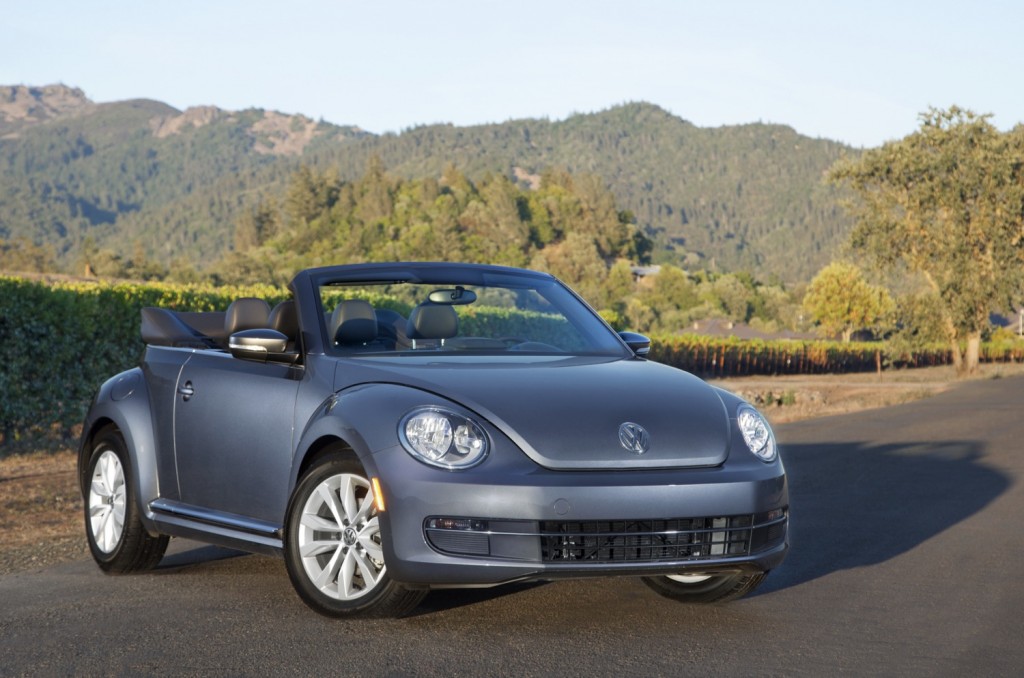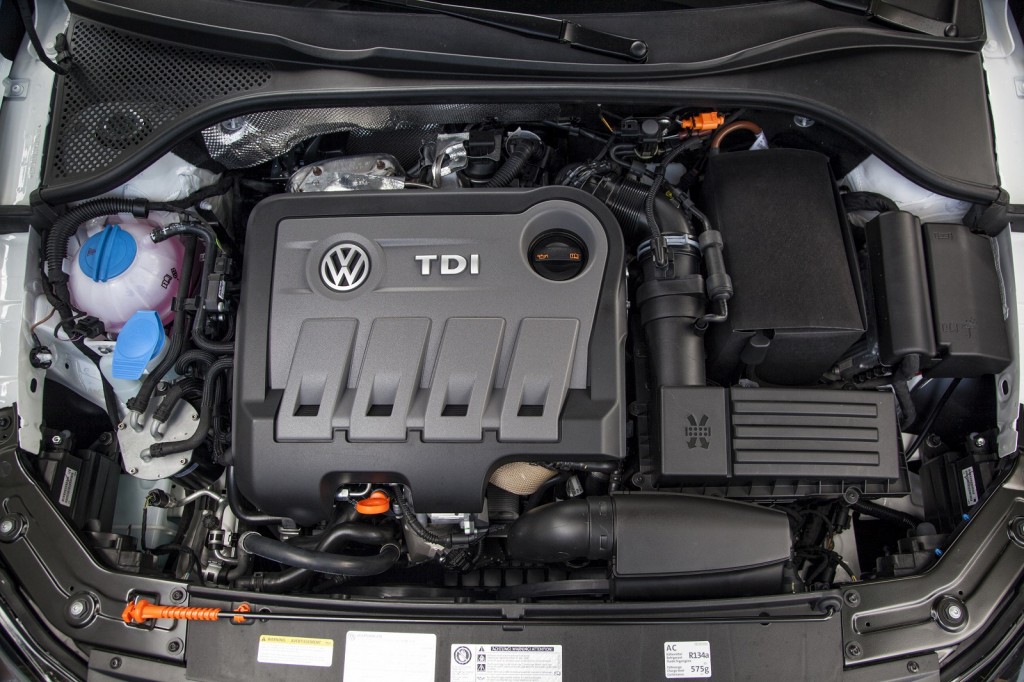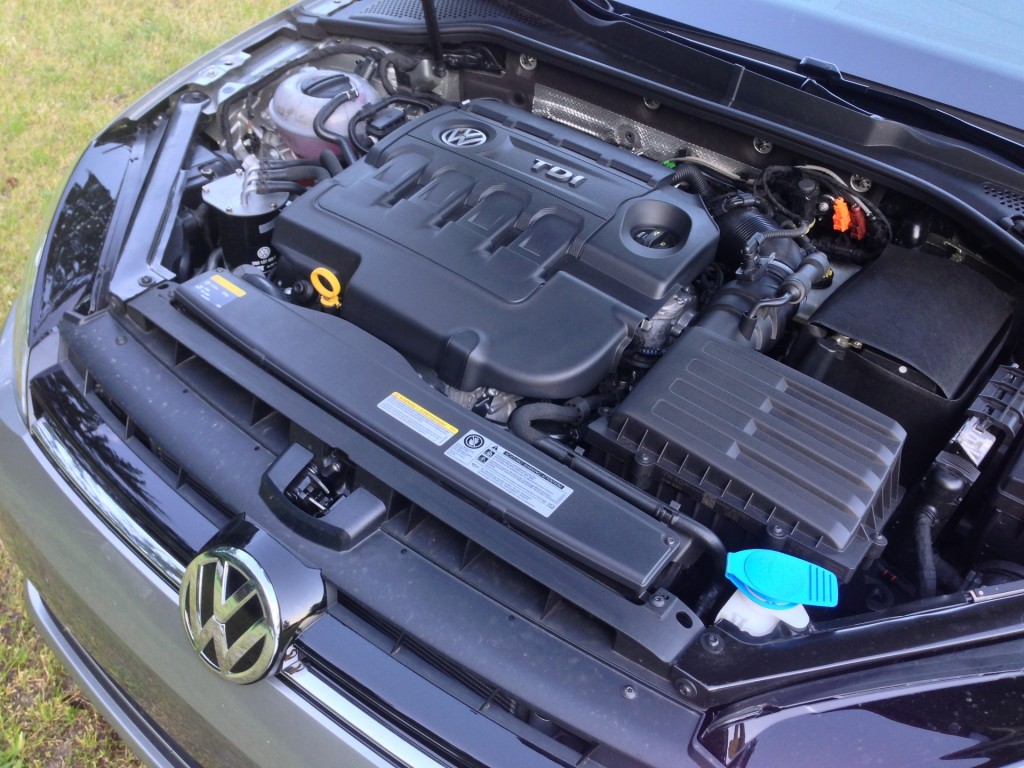One of the many complications of the VW diesel emission scandal is that the 482,000 affected cars in the U.S. encompass three different types of engine and emission-control system.
In Germany, Volkswagen has investigated its newest generation of 2.0-liter diesel engines to find out if they too include the "defeat device" software that allowed the cars to bypass emission controls in real-world use.
Yesterday, the company issued a statement saying that those engines--named EA288--do not have that software installed in their European versions.
DON'T MISS: How Will VW Fix My Diesel Car, And When? A List Of All Models
Therefore, VW's statement said, cars with EA288 engines designed to meet both Euro 5 and Euro 6 emission standards "comply with legal requirements and environmental standards" within the European Union.
Euro 5 standards, in effect from 2006 through last year, are roughly equivalent to U.S. standards in effect through 2007. The tougher Euro 6 limits that came into effect this year are similar to U.S. standards that have now been in place since 2008.

2016 Volkswagen Beetle TDI Convertible
The company is investigating roughly 11 million diesel vehicles altogether, including 2.4 million sold in Germany.
This announcement does not, however, get cars with that engine off the hook in the U.S.
ALSO SEE: EPA: 'Long List' Of Questions On New VW Diesel Software Feature
They include all 2015 TDI models of the Golf, Golf SportWagen, Jetta, Passat, and Beetle already sold, as well as the 2016 models that the EPA has refused to certify for sale.
That's because VW recently told the EPA that those cars have a second piece of software that could affects their emissions as well.

2015 Volkswagen Passat TDI
It apparently functions to warm up some part of the exhaust emission treatment system; carmakers must disclose such devices to the EPA during the certification process so the agency can evaluate and test them if necessary.
The EPA said last week it has a "long list" of questions about that software, and plans to test VW's 2016 diesel vehicles extensively to understand exactly how they behave--and what they emit--in real-world use.
MORE: VW Diesel Emissions Recall: What You Need To Know In 10 Questions
The company's translated release says, in typically stilted fashion, "After thorough examination it is now confirmed that no software constituting an improper defeat device as defined in law is installed in vehicles with EA 288 EU5-engines."
What constitutes an "improper defeat device" under EU law may differ from what the EPA considers to be problematic software, but the agency now appears to be deep into its investigation of those issues.

2015 Volkswagen Golf TDI SE
While VW's North American unit had hoped that its 2016 models could be certified for sale in a matter of weeks--while it develops fixes for the earlier vehicles on the road--it now appears that the certification may take considerably longer.
Volkswagen dealers cannot sell 2015 or 2016 2.0-liter TDI vehicles, either new or used, and some are reportedly worried about running out of cars. October sales reports should provide a better picture of any such problems.
RELATED: EPA Expands VW Diesel Probe To Audi, Porsche V-6s; All Diesels To Be Tested
Fixing the new EA288 diesel engines is still expected to be the easiest task VW faces in the U.S., however, likely involving only a software update.
The company no doubt hopes that 2012-2015 Passat TDIs, which are fitted with the earlier EA189 engine but also have a urea-based Selective Catalytic Reduction aftertreatment system, will also require only software changes.

2014 Volkswagen Passat TDI
But the bulk of the U.S. 2.0-liter TDI cars--325,000 of them--have the older EA189 engine and no urea system.
They will be both the hardest and the most expensive to retrofit, assuming the EPA approves a plan to do so. Analysts expect that VW may simply have to buy back some of those vehicles.
_______________________________________













